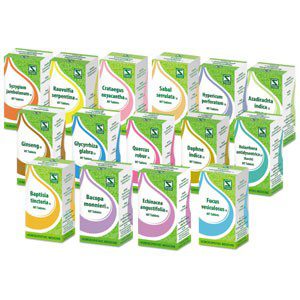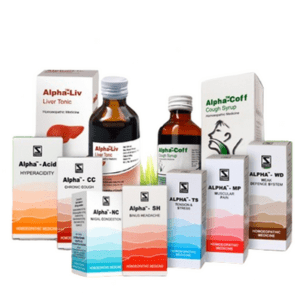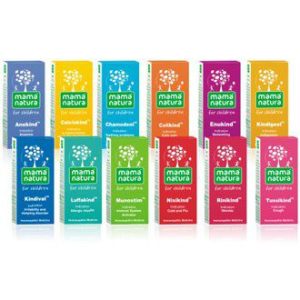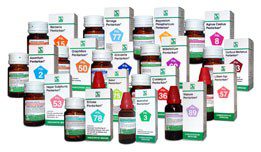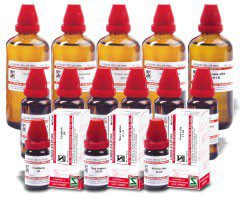
Ultimate Guide To Healthy Skin: Tips & Tricks
- Dr. P T Ponmani
- No Comments

Healthy skin is smooth, hydrated, and free from irritation or infections. It’s not just about appearance—skin is crucial as the body’s first defense against germs and environmental damage. Healthy skin maintains moisture, regulates body temperature, and even helps us sense the world through touch. Skin is a strong barrier that protects us from harmful elements, toxins, and bacteria when it’s in good condition.
Taking care of your skin is essential for many reasons. First, healthy skin promotes confidence. When your skin feels soft, comfortable, and free of blemishes, it naturally boosts your self-esteem. But beyond looks, keeping your skin in good shape prevents a range of issues, from dryness and irritation to more serious conditions like infections or chronic skin disorders.
Proper skincare becomes even more essential as we age since the skin gradually loses elasticity and moisture. Constant sun exposure, pollutants, dust, dirt, and everyday mental and physical stress can speed up the process of aging, leading to wrinkles, discolorations, spots, and a dull complexion. That is why it is essential to incorporate simple but effective habits like daily cleansing, moisturizing, and wearing sunscreen. These simple steps help to keep your skin glowing and youthful over time.
Maintaining skin integrity also supports your immune system. Unhealthy, damaged skin can develop cracks or wounds that allow harmful germs to enter your body. Skin diseases like eczema or psoriasis may cause discomfort and inflammation if not managed on time and with proper medication.
A good skincare routine doesn’t need to be complicated. Drinking plenty of water, eating a balanced diet rich in vitamins, getting enough sleep, and using gentle skincare products tailored to your skin type are all key practices. And don’t forget sunscreen protecting your skin from harmful UV rays is one of the most important steps to avoid early aging and even skin cancer.
Ultimately, healthy skin is about balance. It reflects your overall well-being, both inside and out. Investing time and care into your skin pays off in the long run, helping you feel confident, comfortable, and protected in your own body. So, whether it’s taking an extra minute to apply moisturizer or getting that overdue dermatologist check-up, your skin will thank you for the care.
Remember, taking care of your skin doesn’t have to be complicated. You can easily maintain glowing, healthy skin with consistency and proper habits. This guide breaks down all the essentials, giving you the confidence to follow a simple yet effective skincare routine.
Also Read 10 Reasons Why Your Skin Looks Better When You Use Face Wash Everyday
Table of Contents
ToggleEssential daily skin care habits
Building a solid routine is key to great skin. Here are the basics:
- Cleansing: Use a gentle face wash to ward off dirt and oil without removing the skin’s natural moisture. But don’t overdo it; washing too much can dry your skin.
- Moisturize daily: Maintain your skin’s moisture by hydrating it with a good moisturizer for your skin type. During the day, pick one with SPF to protect against the sun.
- Sunscreen: Always wear sunscreen with an SPF of 30 or higher to block UV radiation.
- Stay hydrated: Drink plenty of water to keep your skin fresh and plump.
- Healthy eating: For a natural glow, eat more fruits, veggies, lean proteins, and omega-3s.
- De-stress: Stress can damage your skin. Regular sleep, exercise, and relaxing activities like yoga or meditation can help.
Guarding against sun damage
- The sun is no joke when it comes to skin health, so take the following precautions:
- Stay in the shade or use a good umbrella during peak sun hours (10 a.m. to 4 p.m.).
- Wear sun-protective clothing—think wide-brimmed hats and sunglasses.
- Reapply sunscreen every two hours or more often if you’re swimming or sweating.
- Skip tanning beds and sunbathing. If you love a sun-kissed look, go for a self-tanner instead.
Skin-loving lifestyle choices
Your day-to-day routine and habits can make or break your skin health:
- Quit smoking: Smoking damages your skin’s collagen and elastin, which can make it age faster.
- Get moving and grooving: Exercising regularly improves blood circulation, giving your skin a healthy boost.
- Catch enough sleep: Aim for 7–9 hours to let your skin rest and repair itself overnight.
Create a routine for your skin type
Knowing your skin type makes a big difference:
- For dry skin: Go for creamy moisturizers and skip hot showers.
- For oily skin: Use lightweight, gel-based products.
- For combination skin: Apply different products to suit different areas of your face.
- For sensitive skin: Stick to fragrance-free, hypoallergenic products.
Build your routine in the following manner:
- Cleanse: Gently wash your face morning and night.
- Treat: Apply treatments for specific concerns like acne or dark spots.
- Moisturize: Use a moisturizer tailored to your skin type.
- Protect: Finish with sunscreen in the morning.
Also Read 10 Winter Skincare Tips for a Head-To-Toe Glow
Addressing common skin issues
Here’s how to handle some of the most common concerns:
- Acne: Try over-the-counter salicylic acid or benzoyl peroxide treatments and resist the urge to pick at blemishes. Acne patches can help with healing.
- Dark spots and scars: Products with vitamin C, niacinamide, or retinoic acid can lighten spots over time. Always use sunscreen to prevent discoloration from worsening.
- Dry/Irritated skin: Moisturize right after you bathe, use lukewarm water, and avoid harsh soaps.
- Sebaceous filaments: Retinol can minimize their appearance but steer clear of aggressive extractions.
Take it up a notch with advanced care.
Want to go the extra mile? Here are some tips:
- Exfoliation: Use chemical exfoliants (like glycolic acid) weekly to remove dead skin. But don’t overdo it, or your skin may become irritated.
- Facial massage: Use your hands or tools like jade rollers to improve circulation and reduce puffiness.
- Those who want to improve their skincare routine should consider professional procedures. Harsh treatments like chemical peels or microdermabrasion can make a big difference. However, it’s always best to consult a dermatologist for stubborn issues. Their expert advice will ensure you’re on the right track in your skincare journey.
Skip these DIY remedies
Some home remedies can hurt more than they help. Avoid using:
- Lemon juice (too harsh and acidic).
- Baking soda (messes with your skin’s natural pH).
- Toothpaste (causes irritation and dryness).
- Raw garlic (can trigger allergies or inflammation).
Remember, it’s important to be patient when trying new skincare routines or products. Give your skin time to adjust, and always stick to products made for your skin type and tested by dermatologists.
Seasonal skin care tips
Your skin’s needs change with the seasons:
- Summer: Opt for lightweight, oil-free moisturizers; don’t forget sunscreen. Stay hydrated and wear protective clothes.
- Winter blues: Use thick moisturizing creams to avoid dryness. You can also opt for a humidifier to add extra moisture to your living space.
- General tips: Change your pillowcases every week to avoid acne breakouts. If your skin is sensitive, avoid harsh perfumes and scented products.
Check on your skin’s health regularly.
- Self-exams: Look for unusual moles or any changes in your skin if you are prone to repetitive skin problems.
- Dermatologist visits: Schedule a routine skin examination to avoid potential issues early.
- Patch test products: First, try new products in a small area to avoid allergic reactions.
Take away
Healthy skin reflects your overall well-being. By sticking to these tips, adapting to your daily routine, and addressing issues early, you can enjoy radiant skin for years!












